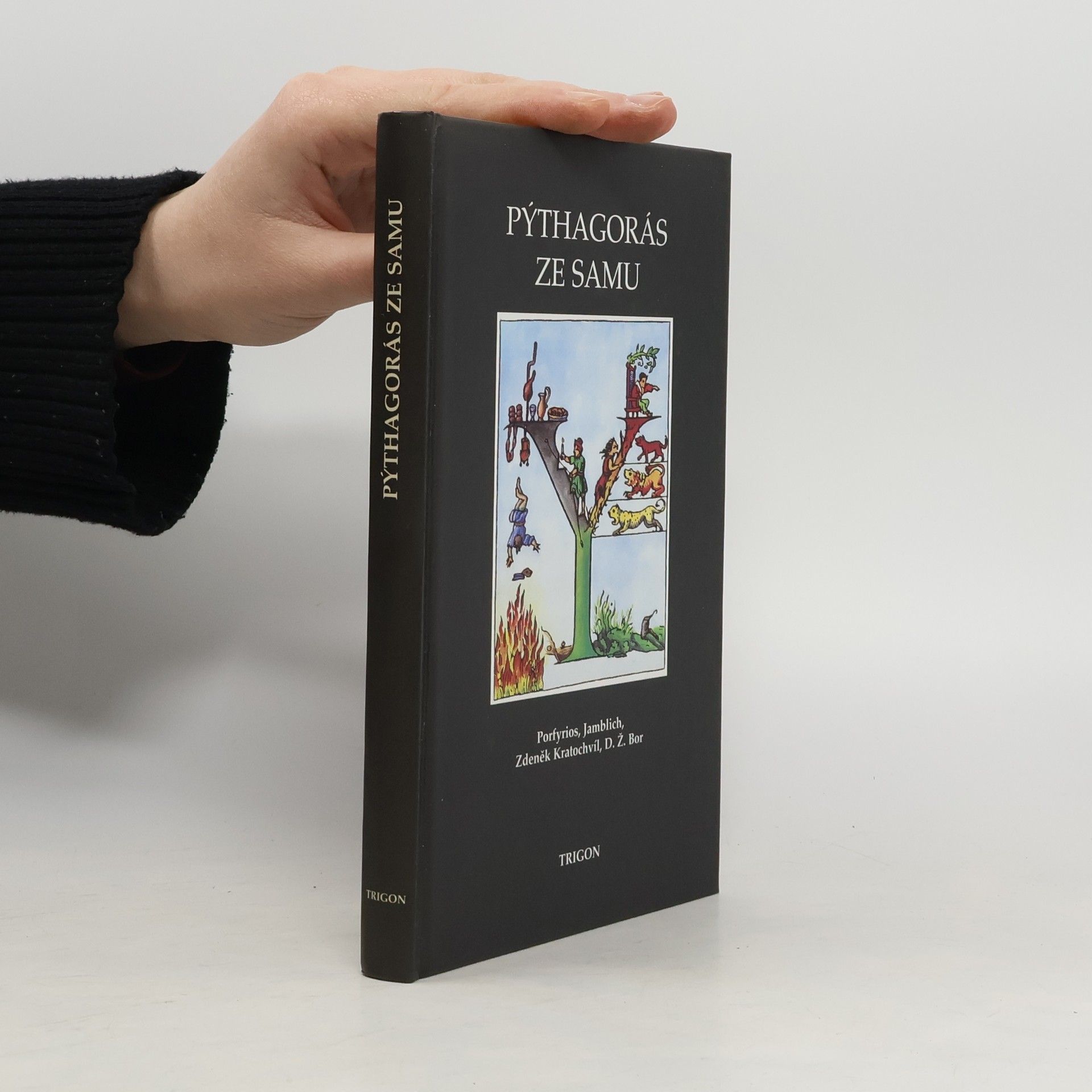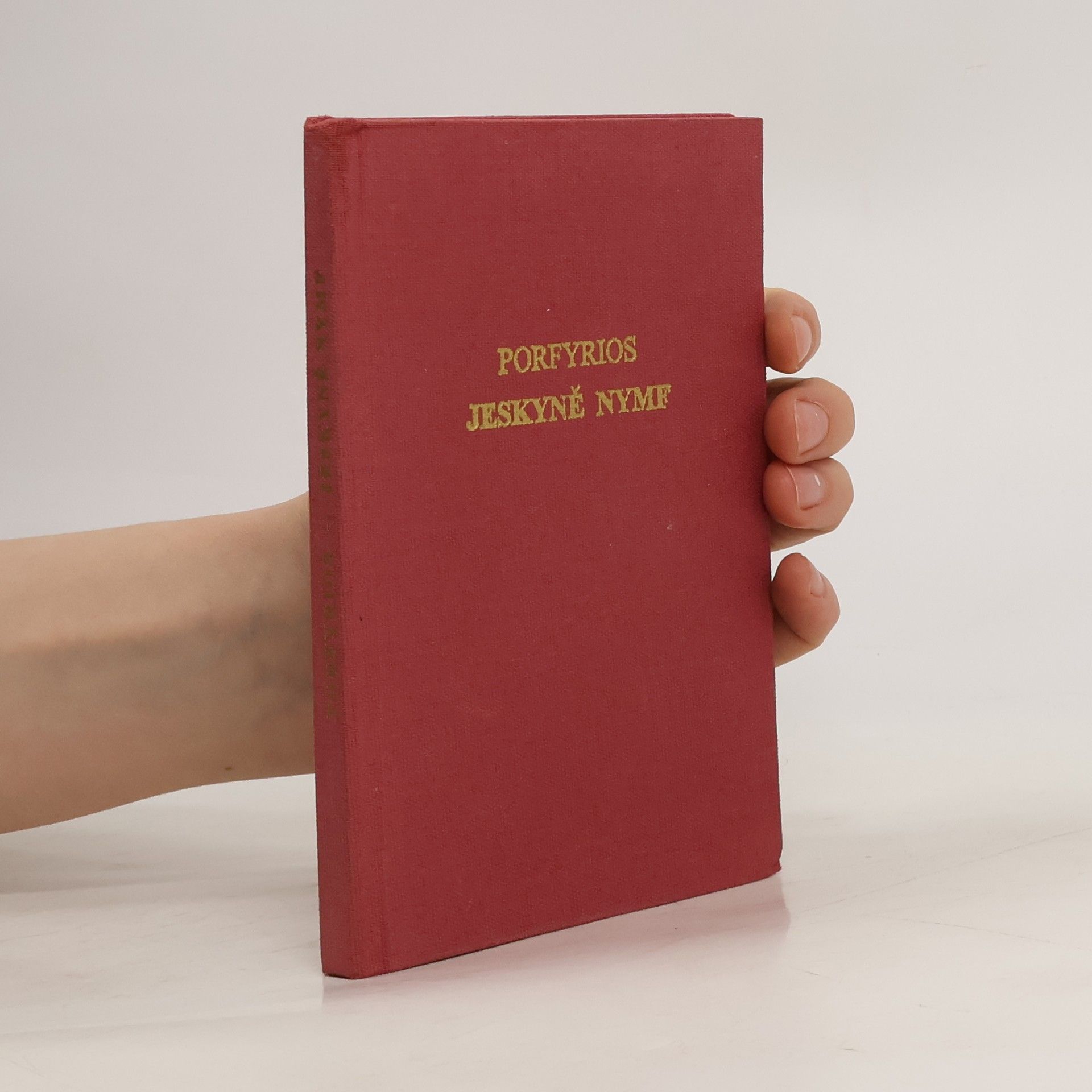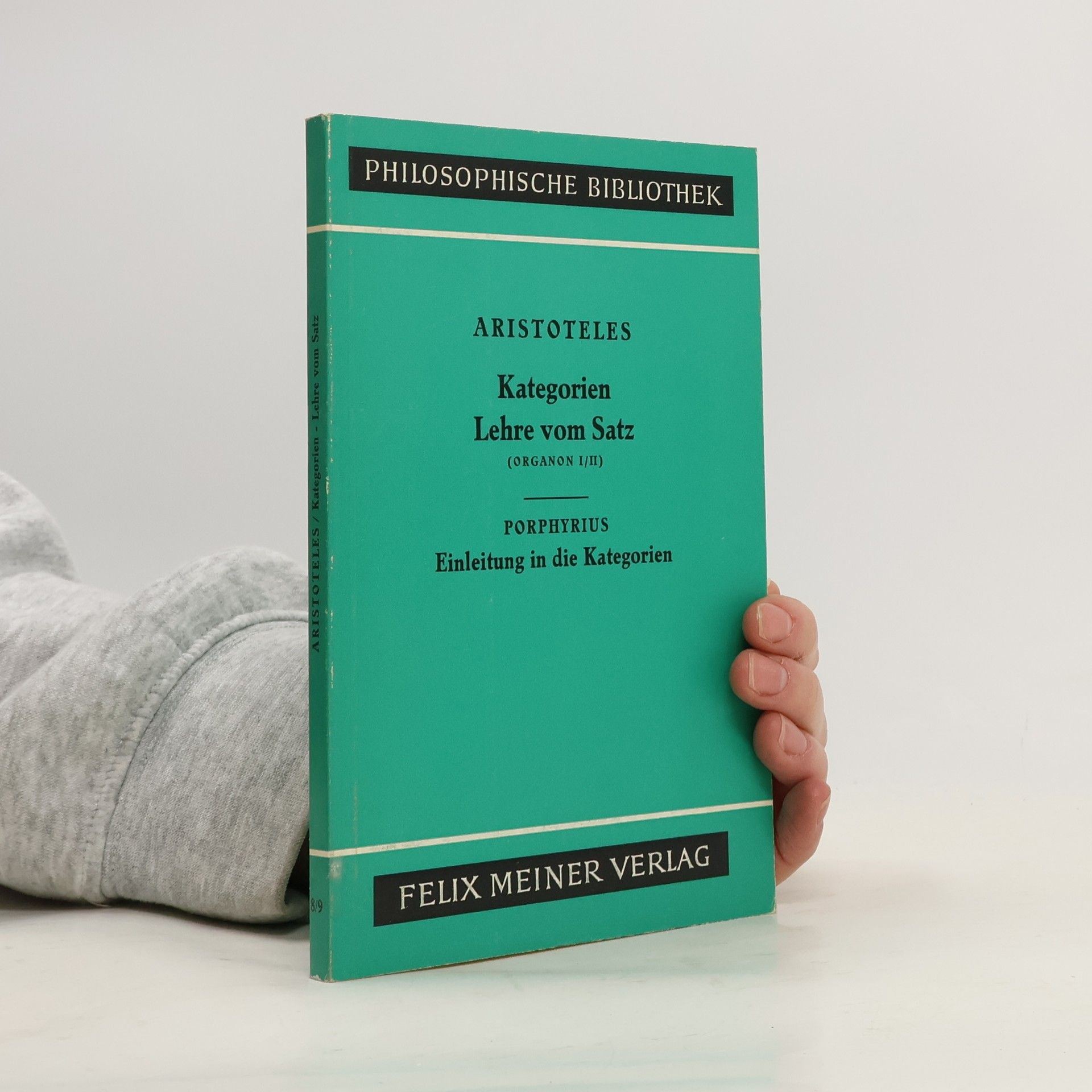Not to be confused with a book of the same name, by Porphyry's student Iamblichus, this condensed portrayal of Pythagoras served as an overview of the Pythagorean philosophy for centuries.
Porfyrios z. Tyru Livres







Theurgia or "The Egyptian Mysteries"
- 360pages
- 13 heures de lecture
Theurgy is presented as a spiritual practice aimed at connecting with planetary spirits and angels, embodying wisdom and light. The book explores the ancient sages' teachings on the significance of understanding the hierarchies of these divine beings. It emphasizes that a pure and selfless lifestyle is essential for gaining the powers needed to achieve communion with these higher entities, highlighting the transformative journey towards spiritual enlightenment.
Porphyrii Philosophi De Abstinentia Ab Esu Animalium, Libri 4 (1767)
- 448pages
- 16 heures de lecture
The book is a facsimile reprint of a scarce antiquarian work, preserving its historical significance despite potential imperfections like marks and notations. It aims to protect and promote important literature by offering an affordable, high-quality modern edition that remains faithful to the original text.
Select Works Of Porphyry
Containing His Four Books On Abstinence From Animal Food, His Treatise On The Homeric Cave Of The Nymphs (1823)
- 292pages
- 11 heures de lecture
Exploring ethical and spiritual dimensions, this collection features four works by Porphyry advocating for abstinence from animal products. It delves into the philosophical reasons behind this practice, alongside a treatise on the Homeric Cave of the Nymphs, unpacking its symbolism and mythology from the Odyssey. The book, published in 1823, serves as a valuable resource for understanding Porphyry's contributions to ancient Greek thought, while also being a facsimile reprint that aims to preserve and promote important literary works.
Pýthagorás ze Samu
- 128pages
- 5 heures de lecture
Kniha o životě, dílu, době a následnících řeckého filozofa. Obsahuje tři hlavní texty od tří autorů (Porfyrios: Život Pýthagorův, Iamblich: Život Pýthagorův, Z. Kratochvíl: Pýthagorejství archaické doby), drobné texty Zlomky od Pýthagora a jeho následovníků a doslov od D. Ž. Bora.
Porfyriova sbírka čtyřiačtyřiceti Sentencí nestejné délky je pokusem zachytit základní principy Plotinovy nauky týkající se vztahu duše a těla, charakteristik tělesného a netělesného, intelektu v jeho jednotě a mnohosti i ,,toho, co vše přesahuje", o němž žádnou nauku podat nelze. Řecko-české vydání připravila Lenka Karfíková.
V Jeskyni nymf filosof formou alegorického výkladu Homérovy Odyssey (XII, 102—112) odhaluje podstatu fenoménu vtělování duší.

